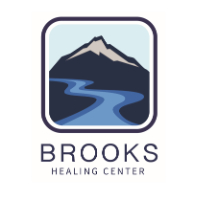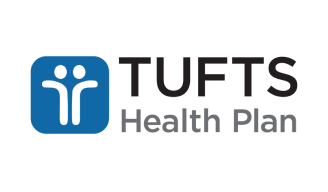Normandy, Tennessee, United States
Brooks Healing Center
Verified
Verified
This provider’s information has been quality-checked by Recovery.com’s Research Team for accuracy and completeness, including center verification through appropriate third-party organizations.
Joint Commission Accredited
The Joint Commission accreditation is a voluntary, objective process that evaluates and accredits healthcare organizations (like treatment centers) based on performance standards designed to improve quality and safety for patients. To be accredited means the treatment center has been found to meet the Commission's standards for quality and safety in patient care.
Provider's Policy
We accept most commercial insurance policies.
Estimated Cash Pay Rate
The cost listed here ($28,500/ 30 days) is an estimate of the cash pay price. Center pricing can vary based on program and length of stay. Contact the center for more information. Recovery.com strives for price transparency so you can make an informed decision.
About Brooks Healing Center
In the rural Tennessee town of Normandy, Brooks Healing Center harnesses the comfort of nature in the surrounding countryside to help adults heal from substance use disorders and co-occurring mental health conditions. Founded by an individual in long-term recovery, Brooks Healing Center was created so that no one feels alone on their journey to recovery. Using a blend of evidence-based and experiential therapies, they help clients heal the mind, body, and spirit for a holistic recovery. Some of the therapies offered include cognitive behavioral therapy (CBT), brainspotting, 12-Step facilitation, animal therapies and expressive activities like art, music, and crafts. Close to city comforts yet separate enough from the real world, it’s a perfect location to slow down and heal in peace.
Healthier Ways of Living and Thinking
Brooks Healing Center specializes in top-of-the-line, research-backed therapeutic techniques. Their modalities are delivered by a team of heart-centered and seasoned staff who’ve seen it all. They provide a safe, comfortable detox environment where clients can regain their baseline health while a team of medically trained professionals takes care of them. During residential recovery, clients submerge themselves in a structured, supervised, and supportive environment. Each client receives a meticulously crafted program addressing not just the addiction itself, but its underlying causes like mental health struggles, trauma, and relationship issues. Clients engage in cognitive behavioral therapy (CBT), a goal-oriented talk therapy that focuses on the cycle of how thoughts impact feelings and, in turn, actions. Their 12-Step facilitation also helps clients maintain abstinence from substances.
Embracing the Present Moment through Experiential Therapies
Experiential therapies are at the core of the Brooks Healing Center’s mission. Therapies that incorporate art, music, role playing, and animals offer an effective approach to addressing clients’ addiction and mental health challenges by focusing on the present moment. These immersive treatment methods complement CBT and 12-Step offerings by providing non-verbal ways of exploring the world.
Recovery Rooted in Nature
Planted between Nashville and Chattanooga, Brooks Healing Center is surrounded by luscious greenery and fresh air only found in the country. It’s a relaxing and supportive environment that helps clients leave the pressures of life behind as they take their first steps on the road to recovery. The property features shared rooms, a library, and several indoor and outdoor lounge spaces. clients have access to nature and can take in the beautiful natural area from hammocks and swinging chairs around the property. Brooks Healing Center utilizes their beautiful property for experiential therapy sessions including animal care, role-playing, music, arts and crafts, and more.
Read More

Co-Occurring Disorders
Brooks Healing Center addresses not only the client’s addiction, but any underlying causes like mental health conditions. They use CBT, experiential therapy, and trauma-informed therapy to help clients understand and ease the impact of co-occurring mental health disorders. This is crucial for long-term recovery, as treating both addiction and mental health conditions simultaneously leads to better outcomes.
Trauma-Informed Therapy
The team at Brooks Healing Center uses trauma-informed therapy to help clients identify their trauma triggers and provide resources to manage them. Clients learn to navigate fears of specific places, people, or activities that remind them of their trauma. They develop healthy coping mechanisms to use when feeling overwhelmed by trauma. This form of therapy can also validate a client’s feelings, allowing them to feel seen, if they have been told that they’re overreacting to their trauma or are making it up.
Brainspotting Therapy
Brooks Healing Center offers brainspotting to provide relief for clients battling anxiety, attachment issues, substance use, chronic pain, post-traumatic stress disorder (PTSD), and major depressive disorder. This therapeutic technique involves identifying and processing emotional distress by focusing on specific points in the body. A trained therapist guides the client through a process of mindfulness, relaxation, and eye-movement to pinpoint areas of discomfort and facilitate healing.
Animal Therapies
At Brooks Healing Center, animal therapies provide clients with opportunities to confront their feelings in a safe way. When people are focused on an activity such as animal care, they tend to be less guarded. For example, if a client is asked to interact with one of the animals at Brooks Healing Center but the animal doesn’t react the way the client was anticipating, that interaction may help them reflect on their own behaviors and improve patterns that contribute to their addiction.

Center Overview
Estimated Cash Pay Rate
Older Adults
Addiction and mental health treatment caters to adults 55+ and the age-specific challenges that can come with recovery, wellness, and overall happiness.
Young Adults
Emerging adults ages 18-25 receive treatment catered to the unique challenges of early adulthood, like college, risky behaviors, and vocational struggles.
Men and Women
Men and women attend treatment for addiction in a co-ed setting, going to therapy groups together to share experiences, struggles, and successes.
Midlife Adults
For adults ages 40+, treatment shifts to focus on the unique challenges, blocks, and risk factors of their age group, and unites peers in a similar community.
Professionals
Busy, high-ranking professionals get the personalized treatment they need with greater accommodations for work, privacy, and outside communication.
Veterans
Patients who completed active military duty receive specialized treatment focused on trauma, grief, loss, and finding a new work-life balance.

Treatment Focus
This center treats primary substance use disorders and co-occurring mental health conditions. Your treatment plan addresses each condition at once with personalized, compassionate care for comprehensive healing.

Care Options






Treatment
Specializations
Alcohol
Using alcohol as a coping mechanism, or drinking excessively throughout the week, signals an alcohol use disorder.
Benzodiazepines
Benzodiazepines are prescribed to treat anxiety and sleep issues. They are highly habit forming, and their abuse can cause mood changes and poor judgement.
Cocaine
Cocaine is a stimulant with euphoric effects. Agitation, muscle ticks, psychosis, and heart issues are common symptoms of cocaine abuse.
Drug Addiction
Drug addiction is the excessive and repetitive use of substances, despite harmful consequences to a person's life, health, and relationships.
Heroin
Heroin is a highly addictive and illegal opioid. It can cause insomnia, collapsed veins, heart issues, and additional mental health issues.
Medication-Assisted Treatment
Combined with behavioral therapy, prescribed medications can enhance treatment by relieving withdrawal symptoms and focus patients on their recovery.
Methamphetamine
Methamphetamine, or meth, increases energy, agitation, and paranoia. Long-term use can result in severe physical and mental health issues.
Opioids
Opioids produce pain-relief and euphoria, which can lead to addiction. This class of drugs includes prescribed medication and the illegal drug heroin.
Approaches
Evidence-Based
A combination of scientifically rooted therapies and treatments make up evidence-based care, defined by their measured and proven results.
Experiential
Expressive tools and therapies help patients process past situations, learn more about themselves, and find healing through action.
Medical
Medical addiction treatment uses approved medications to manage withdrawals and cravings, and to treat contributing mental health conditions.
Personalized Treatment
The specific needs, histories, and conditions of individual patients receive personalized, highly relevant care throughout their recovery journey.
Twelve Step
Incorporating spirituality, community, and responsibility, 12-Step philosophies prioritize the guidance of a Higher Power and a continuation of 12-Step practices.
Wilderness Program
Wilderness programs focus on using nature and the outdoors environment to facilitate one’s self-reflective and therapeutic journey.
Therapies
1-on-1 Counseling
Patient and therapist meet 1-on-1 to work through difficult emotions and behavioral challenges in a personal, private setting.
Meditation & Mindfulness
A practiced state of mind that brings patients to the present. It allows them to become fully aware of themselves, their feelings, and the present moment.
Trauma-Specific Therapy
This form of talk therapy addresses any childhood trauma at the root of a patient's current diagnosis.
Mindfulness Therapy
This ancient practice can be mental, emotional, and even spiritual. In meditation, you focus your attention on the present moment without judgement.
Adventure Therapy
This experiential approach uses the physical and emotional challenges of outdoor activities as tools for personal growth.
Attachment-Based Family Therapy
ABFT is a trauma-focused therapy that teaches you to form healthy relationships by rebuilding trust and healing attachment issues formed in childhood.
Animal Therapy
Animals can inspire trust and self-worth. In this experiential therapy, guided interactions are used to improve social skills and emotion regulation.
Art Therapy
Visual art invites patients to examine the emotions within their work, focusing on the process of creativity and its gentle therapeutic power.
Conditions We Treat
Pornography Addiction
A person with a porn addiction is emotionally dependent on pornography to the point that it interferes with their daily life and relationships.
Grief and Loss
Grief is a natural reaction to loss, but severe grief can interfere with your ability to function. You can get treatment for this condition.
Personality Disorders
Personality disorders destabilize the way a person thinks, feels, and behaves. If untreated, they can undermine relationships and lead to severe distress.
ADHD, ADD
ADHD is a common mental health condition caused by dopamine imbalance. Common symptoms include inattention, hyperactivitiy, and impulsivity.
Anger
Although anger itself isn't a disorder, it can get out of hand. If this feeling interferes with your relationships and daily functioning, treatment can help.
Anxiety
Anxiety is a common mental health condition that can include excessive worry, panic attacks, physical tension, and increased blood pressure.
Bipolar
This mental health condition is characterized by extreme mood swings between depression, mania, and remission.
Codependency
Codependency is a pattern of emotional dependence and controlling behavior. It's most common among people with addicted loved ones.
Depression
Symptoms of depression may include fatigue, a sense of numbness, and loss of interest in activities. This condition can range from mild to severe.
Substances We Treat
Alcohol
Using alcohol as a coping mechanism, or drinking excessively throughout the week, signals an alcohol use disorder.
Benzodiazepines
Benzodiazepines are prescribed to treat anxiety and sleep issues. They are highly habit forming, and their abuse can cause mood changes and poor judgement.
Chronic Relapse
Consistent relapse occurs repeatedly, after partial recovery from addiction. This condition requires long-term treatment.
Co-Occurring Disorders
A person with multiple mental health diagnoses, such as addiction and depression, has co-occurring disorders also called dual diagnosis.
Cocaine
Cocaine is a stimulant with euphoric effects. Agitation, muscle ticks, psychosis, and heart issues are common symptoms of cocaine abuse.
Drug Addiction
Drug addiction is the excessive and repetitive use of substances, despite harmful consequences to a person's life, health, and relationships.
Ecstasy
Ecstasy is a stimulant that causes intense euphoria and heightened awareness. Abuse of this drug can trigger depression, insomnia, and memory problems.
Heroin
Heroin is a highly addictive and illegal opioid. It can cause insomnia, collapsed veins, heart issues, and additional mental health issues.
Psychedelics
Hallucinogenic drugs—like LSD—cause euphoria and increased sensory experiences. When abused, they can lead to depression and psychosis.
Aftercare
Experience
Personal Amenities
Amenities
Special Considerations
Center Pets
Addiction and mental health facilities with pets allow patients to interact with friendly dogs, cats, horses, and in some cases, even dolphins.
Healthy Meals are provided
Great food meets great treatment, with providers serving healthy meals to restore nutrition, wellbeing, and health.
Gender-specific groups
Patients in gender-specific groups gain the opportunity to discuss challenges unique to their gender in a comfortable, safe setting conducive to healing.
Pet Friendly
For greater comfort and healing, pet-friendly treatment centers welcome dogs and animal companions to stay with their owners while they attend treatment.
Clients can bring their own pet(s)
For greater comfort and healing, pet-friendly treatment centers welcome dogs and animal companions to stay with their owners while they attend treatment.
Activities
Off-Site Activities
Off-Site Amenities
Professional Staff
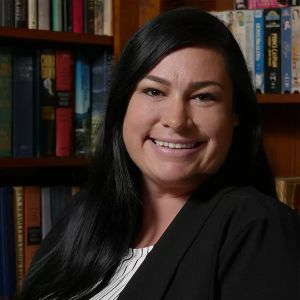
Amanda Hunt
Alumni Coordinator

Bailey Hebert
Primary Therapist
MSW
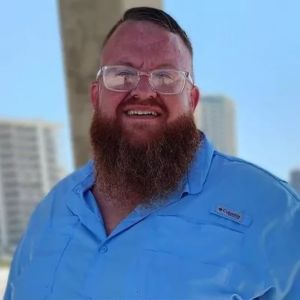
Brandon Bouldin
Business Development
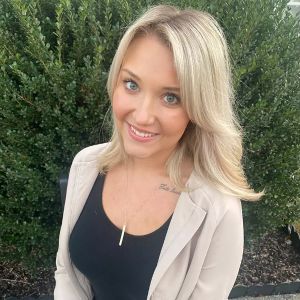
Cady Fields
CFO & Director of HR
Bachelor of Science in Public Relations
View More Team Members
We love hearing about your treatment experience
Help individuals and families seeking treatment by sharing your first-hand experience with this treatment provider. Review Guidelines.


























